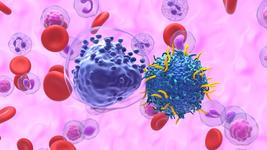CRISPR Unlocks Sweeter Tomatoes Without Yield Loss
CMN Intelligence - The World’s Most Comprehensive Intelligence Platform for CRISPR-Genomic Medicine and Gene-Editing Clinical Development
Providing market intelligence, data infrastructure, analytics, and reporting services for the global gene-editing sector. Read more...
The study identified two key genes, SlCDPK27 and SlCDPK26, through a genome-wide association study (GWAS) that linked genetic variants to soluble solids content (SSC). The researchers pinpointed SlCDPK27 as a negative regulator of sugar accumulation based on its expression pattern, which negatively correlated with sugar levels.
SlCDPK27 was found to promote the degradation of a sucrose synthase by phosphorylating it, thereby functioning as a sugar brake. Further investigation identified SlCDPK26 as a paralogue with similar regulatory functions.
CRISPR-Cas9 was employed to inactivate these genes in cultivated tomato varieties. Mutants were created by targeting SlCDPK27 and SlCDPK26 with specific guide RNAs, introducing deletions that disrupted kinase activity necessary for sucrose synthase degradation. Functional assays confirmed the loss of kinase function in the edited genes, leading to up to 30% higher glucose and fructose levels in the fruits.
Notably, these edits did not affect fruit size or yield. Sensory panels validated the enhanced sweetness of the edited tomatoes. The modifications had minimal side effects, with a slight reduction in seed weight but normal germination.
The research was led by Sanwen Huang at the Chinese Academy of Agricultural Sciences, and it was published last week in Nature.
To get more CRISPR Medicine News delivered to your inbox, sign up to the free weekly CMN Newsletter here.
Tags
CLINICAL TRIALS
Sponsors:
Base Therapeutics (Shanghai) Co., Ltd.
Sponsors:
Base Therapeutics (Shanghai) Co., Ltd.







